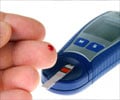Inadequate social support reduces one’s ability to cope with the management of type 2 diabetes.

‘Inadequate social support reduces one’s ability to cope with the management of type 2 diabetes. This results in diabetes-related distress. Thus, an increase in perceived social support significantly attenuates diabetes-related distress and further complications.’





"Too often diabetes treatment is understood as a simple process of taking medications and monitoring blood sugar. In reality, diabetes is a chronic condition that requires a great deal of mental and emotional energy, which when depleted, can impair care," says Clipper Young, PharmD, MPH, associate professor and a clinical pharmacist at Touro University California College of Osteopathic Medicine.Few studies also report that diabetes-related mortality and morbidity are highest among people with lower socioeconomic status. This was demonstrated by a study conducted at Solano County Family Health Services Clinics in Vallejo and Fairfield, California. It involved 101 participants between 40 and 80 years of age. Approximately 75% of the participants reported an annual income of less than $20,000.
With the consequential effects of social support on diabetes-related distress, it is therefore required for clinicians to optimize diabetes management with a focus on perceived social support. This would result in better treatment outcomes and reduce the risk of diabetes-related complications.
Source-Medindia















